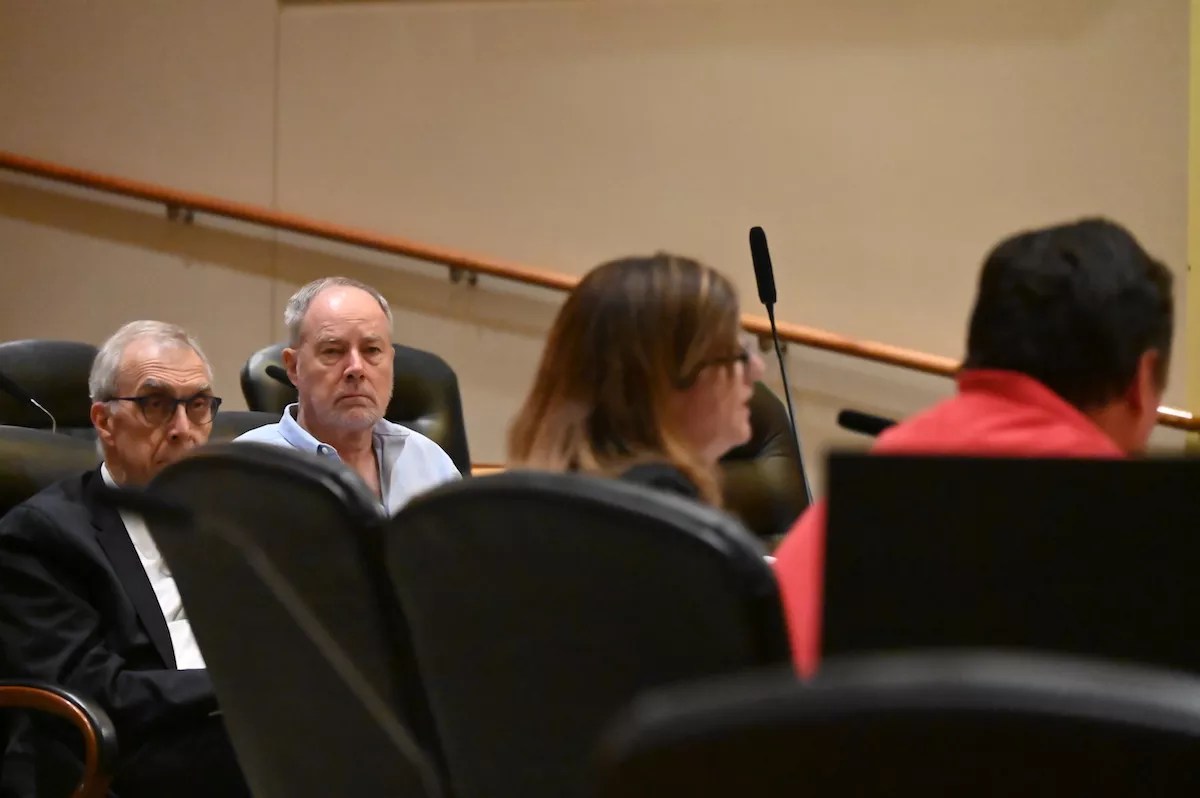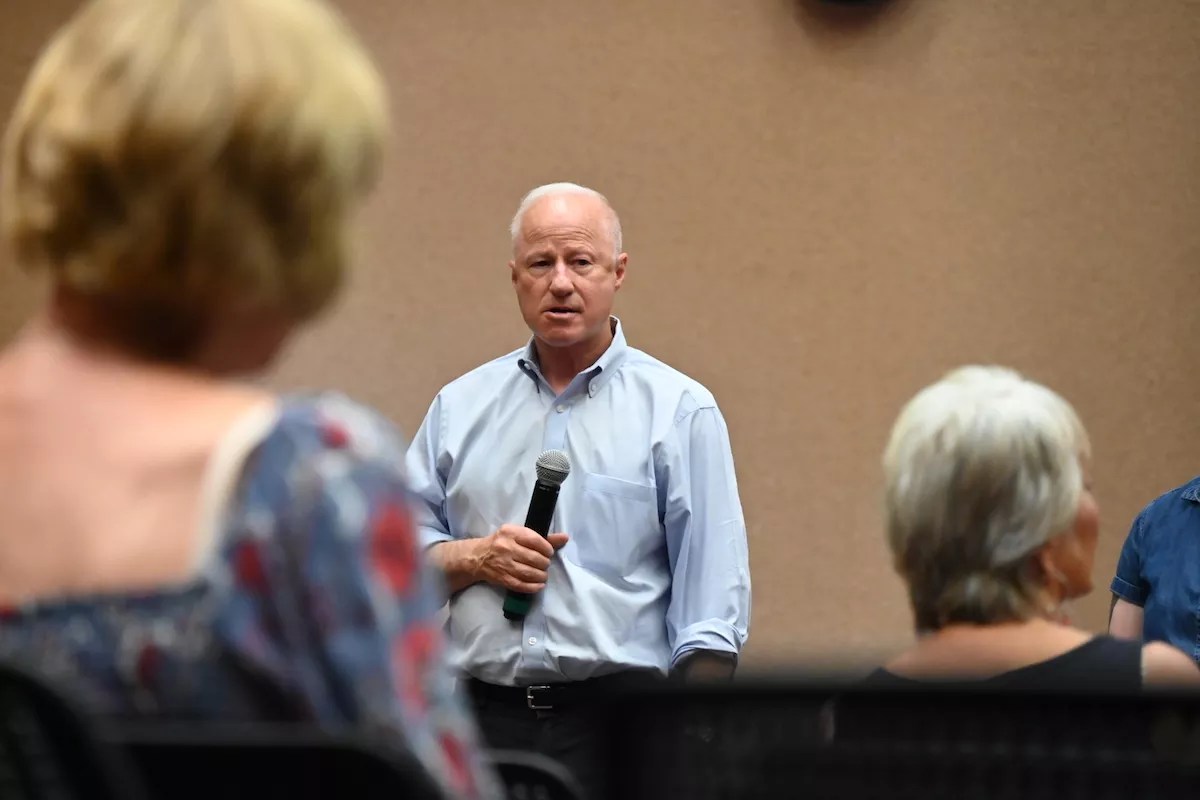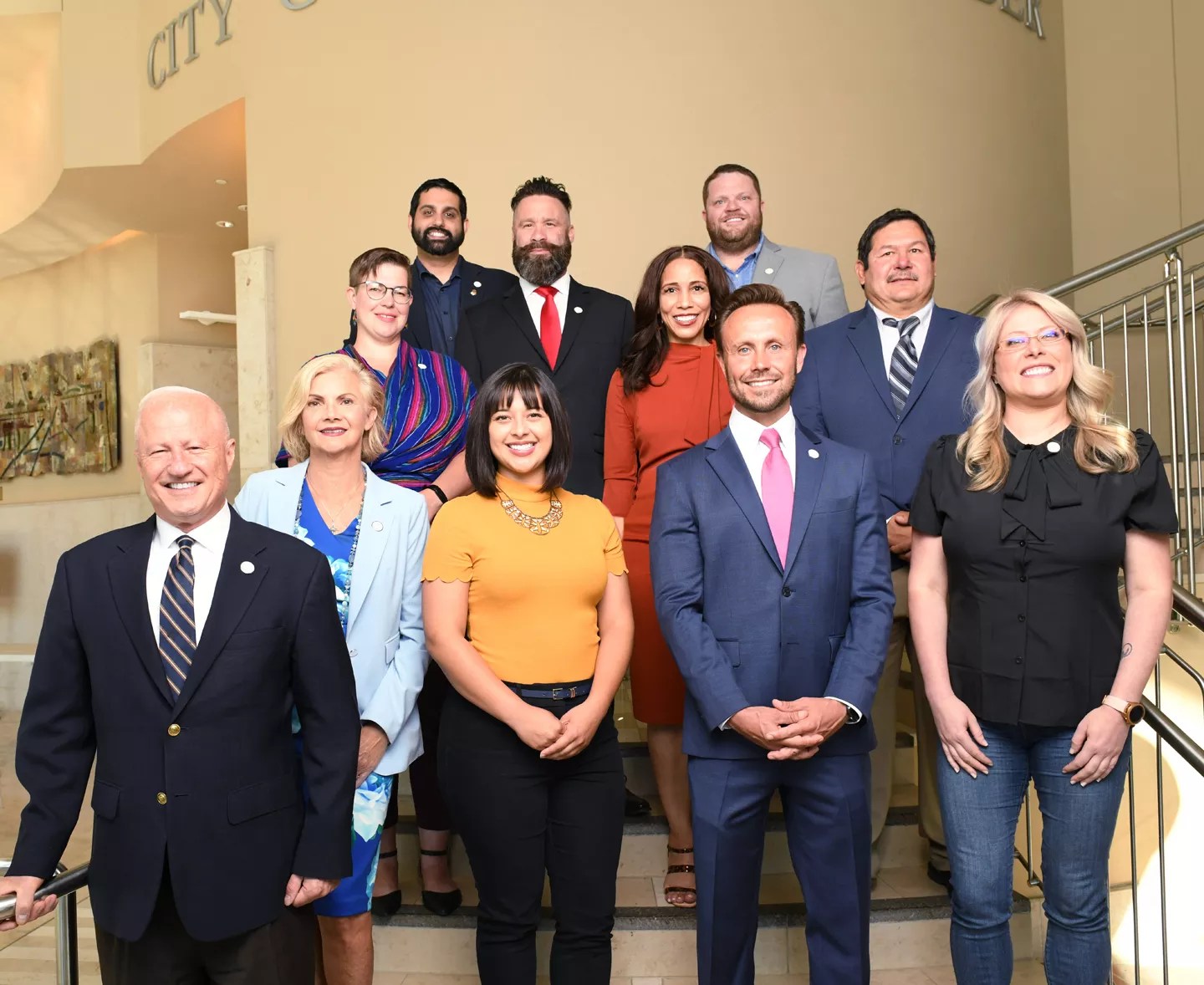
Bennito L. Kelty

Audio By Carbonatix
After waiting anxiously all day for a decision from Aurora City Clerk Kadee Rodriguez, Charlie Richardson finally learned the outcome of his fight to defeat Mike Coffman’s strong-mayor proposal. The clerk emailed emailed just before 8 p.m. on September 11.
“We lost,” the former city official admits. “Apparently, the clerk has found no defects with the petition.”
As a result, Rodriguez ruled that Richardson had not met the burden of proof to show that a petition proposing to put a strong-mayor proposal on the ballot violated city code by failing to include a clear summary. Since the petition was turned in after the recommended deadline, though, the proposal will not be on the November 2023 ballot…but it could be on a future ballot.
Since May, Aurora residents have been battling over whether to convert to a strong-mayor form of government – giving their mayor CEO-like powers to hire and fire department heads without approval from Aurora City Council, and also giving the mayor more control over the city budget.
On September 8, city officials confirmed that the controversial proposal had run out of time to make the November ballot, since proponents had turned in signatures several weeks after a city-recommended deadline. Proponents of the bill, including Mayor Coffman, had already announced on August 25 that the proposal wouldn’t make it to the November ballot because “opponents were able to delay the process just long enough for the ballot initiative to miss a critical deadline,” according to a statement from Mountain State Solutions, an advocacy group supporting the proposal.
Even though the petition had been bumped from the November ballot, Richardson, a former member of city council and once the city manager, had hoped that his complaint that the petition itself violated state and city code would get the proposal killed for good. But his attempt failed.
Although he lost the latest round, he still questions whether the current petition can be simply moved to the 2025 ballot. “How do you shift this measure from 2023 to 2025 when it has very specific dates in it that relate to the implementation?” Richardson asks. “I have about a dozen legal arguments that I could make as to why you cannot simply airlift this 2023 initiative to 2025.”
Although Coffman said last month that he’s “glad that [the proposal] can be on the ballot in 2025 without having to gather signatures again,” Richardson suggests that the mayor’s comment “was a face-saving measure.”

Mike Coffman supports Aurora’s strong-mayor proposal, even if the vote is postponed two years.
Bennito L. Kelty
Eighteen protests against the proposal had been filed with the city clerk; Rodriguez held two hearings late last month to consider the complaints. Some protests had asked the clerk to remove individual signatures that were allegedly collected illegitimately, while others asked for whole sections or the entire petition to be thrown out.
The clerk already had a deadline of September 8 to certify the ballot. The deadline for ruling on the protests was September 11, ten days from the last protest hearing on August 30.
On September 9, Rodriguez ruled that two people could have their signatures removed; she’d previously ruled that four others had met the burden of proof to remove their names as well. Still, late on September 11, she made her final decision: The petition has almost 200 more signatures than the 12,017 required to qualify for the ballot. But it just won’t be on this year’s ballot.
For the clerk to throw out the petition altogether was “a very tall mountain to claim” because “it would be a job-jeopardy situation,” Richardson suggests.
“We were essentially asking the clerk to rule that the clerk had screwed this up,” he says. “It would have been extremely difficult to formally find that the clerk approved a defective petition.”
Richardson can still appeal the clerk’s decision.
This past spring, canvassers from the Yes on Term Limits and Empowering the Mayor campaign started gathering signatures for the strong-mayor proposal. It was controversial from the start, with critics calling it deceptive; a bipartisan coalition of Aurora City Council members formed in May to publicly oppose the measure.

A bipartisan coalition formed on the Aurora City Council to oppose the push for a strong-mayor government.
Aurora City Council
On June 26, the campaign turned in the petition with more than 20,000 signatures. On July 25, the city clerk determined that the petition had 12,198 valid signatures, enough to be tentatively placed on this year’s November 7 general election ballot.
Although Coffman had denied he was supporting the strong-mayor proposal, he now admitted that he was a proponent, and had donated $10,000 to the Term Limits campaign. Another $144,000 was contributed by Colorado Dawn, a group that funded Republican and nonpartisan conservative candidates for the Colorado Springs City Council in 2021.
Coffman, a Republican, is running for re-election this year. His main opponent is Democrat Juan Marcano, a city council member who says Coffman’s hidden involvement in the strong mayor proposal was “the worst-kept secret in Aurora.”
Even after the petition was turned in with enough signatures, the proposal still needed to pass through three hoops: a lawsuit, protests filed with the city clerk, and two city council votes.
Richardson sued the City of Aurora and several campaign supporters on August 5, arguing that the petition should be deemed null because it asked voters to decide on multiple unrelated questions – a violation of Colorado’s single-subject rule – or at least be required to have a reworded, straightforward summary.
That lawsuit was tossed when an Arapahoe County judge ruled that courts can’t rule on measures that haven’t been passed by voters. The judge also rejected a replacement ballot summary offered by Richardson.
The proposal never made it to council for the official readings – although members voted to oppose it on August 14. Because of the late filing of the petition and the subsequent protests, city officials decided the proposal didn’t have time to get through all charter-mandated procedures in time to make it to the 2023 ballot. But the clerk still issued her ruling on the validity of the petition.
Since the Aurora city charter prohibits local elections in the same year as presidential elections, the next chance for the strong-mayor proposal to make a ballot would be 2025.